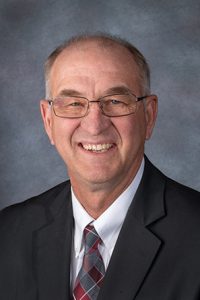State loan for federal judgments proposed
The Revenue Committee heard testimony Feb. 28 on a bill that would allow a political subdivision to apply for a state loan to help pay a federal judgment against it.
In 2016, a federal judge awarded more than $28 million in damages to the six men and women wrongfully convicted of the rape and homicide of a Beatrice woman in 1985. The individuals, commonly known as the “Beatrice Six,” had sued Gage County in federal court after DNA evidence exonerated them.
Adams Sen. Myron Dorn, sponsor of LB473, said he introduced the bill to help the residents of Gage County, which raised its property tax levy for the 2018-19 fiscal year in order to pay the judgment, as required by law.
Dorn said the county increased its property tax levy from approximately 38 cents per $100 of valuation to the statutory 50-cent limit. It will use the additional revenue to pay the judgment, he said, but that will take at least eight years under current budget conditions.
If constitutional or statutory provisions prevent a public corporation or political subdivision from budgeting sufficient funds to pay a judgment in full, LB473 would require the public corporation or political subdivision to pay the portion of the judgment that it can under the law and then apply to the state treasurer for a loan to pay the rest.
If the state treasurer determines the loan to be proper, he or she would make the loan—with an interest rate of 0.5 percent per year—from funds available for investment in the state treasury.
The bill would require the governing body of the public corporation or political subdivision to budget and levy a sufficient amount to meet a repayment schedule determined by the treasurer until the loan, with interest, has been repaid.
Dorn said a state loan with a repayment term of more than eight years would allow the county to reduce its levy from the current 50-cent maximum, easing the annual property tax burden on Gage County residents.
“LB473 allows for the judgment to be paid quickly … while still holding Gage County accountable for the total amount of the judgment,” Dorn said.
James Nelson, a Beatrice attorney, testified in support of the bill on behalf of the Nebraska State Bar Association. He said LB473 would allow plaintiffs to be paid more quickly and would help any county, city or school district with a federal judgment against it to “stop the bleeding and just move on.”
Testifying in opposition to the bill was Gregory C. Lauby, a Gage County resident. A state loan could reduce the annual property tax bill of Gage County property owners, he said, but it would not reduce the amount of the judgment they are required to pay.
Agricultural land makes up approximately three-quarters of the county’s property valuation, Lauby said, meaning farmers will pay a disproportionate share of the taxes used to pay the judgment.
Don Schuller gave neutral testimony on the bill, saying the idea of a state loan has merit. However, because the Beatrice Six were convicted under state law, he said, the state has a responsibility to pay the judgment.
“Innocent people of Gage County need help in paying this judgment, not a loan,” Schuller said.
The committee took no immediate action on the bill.

